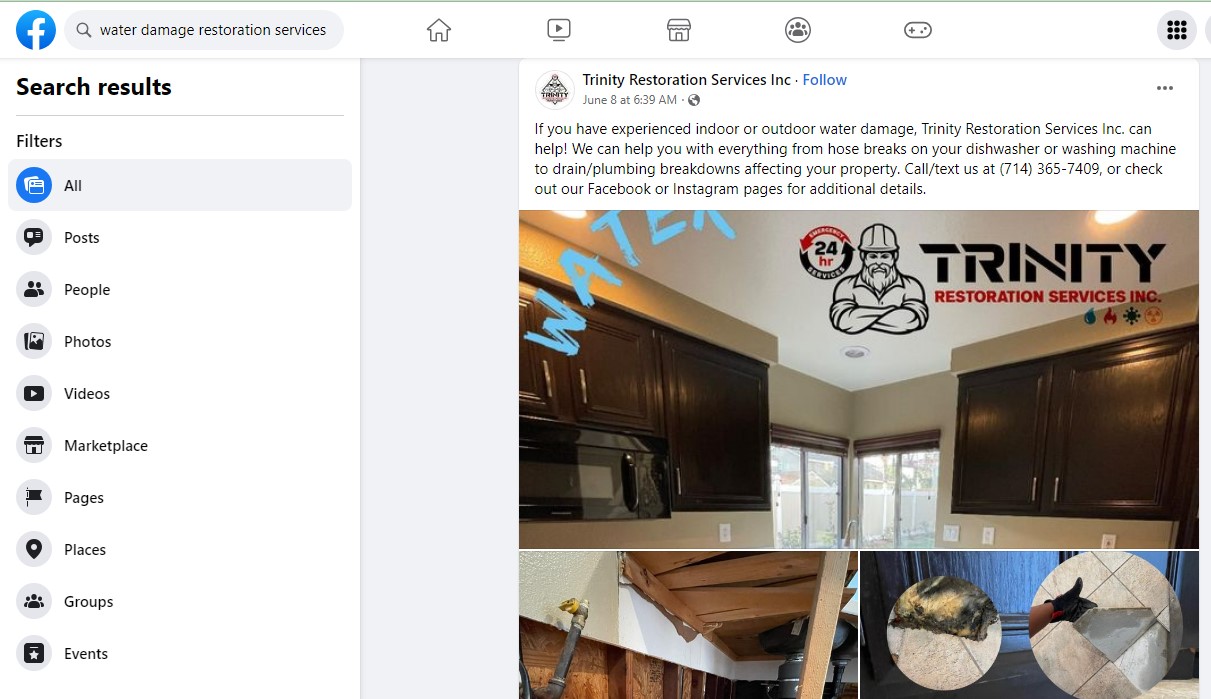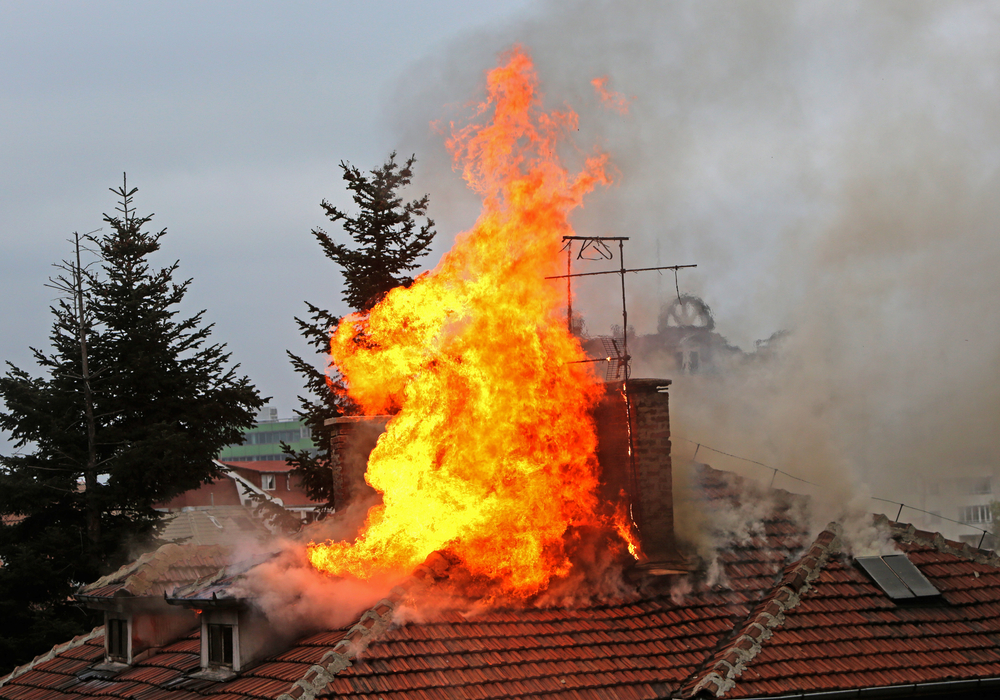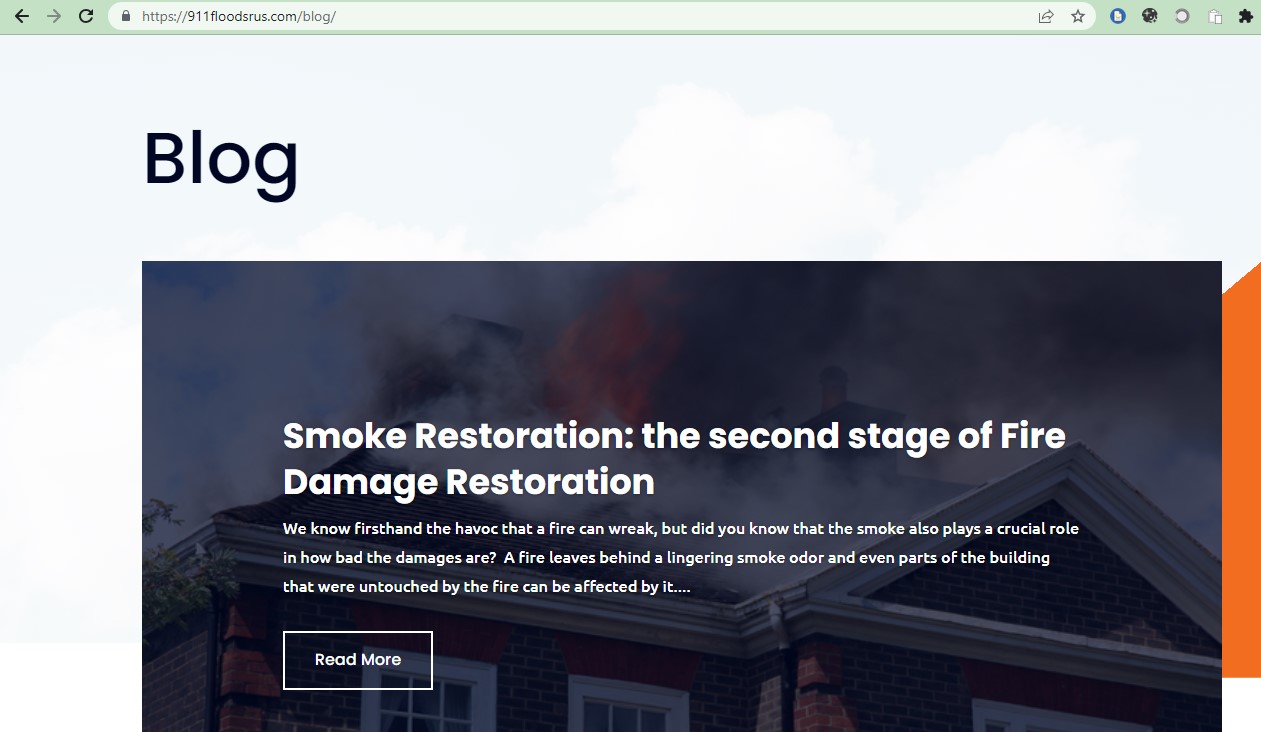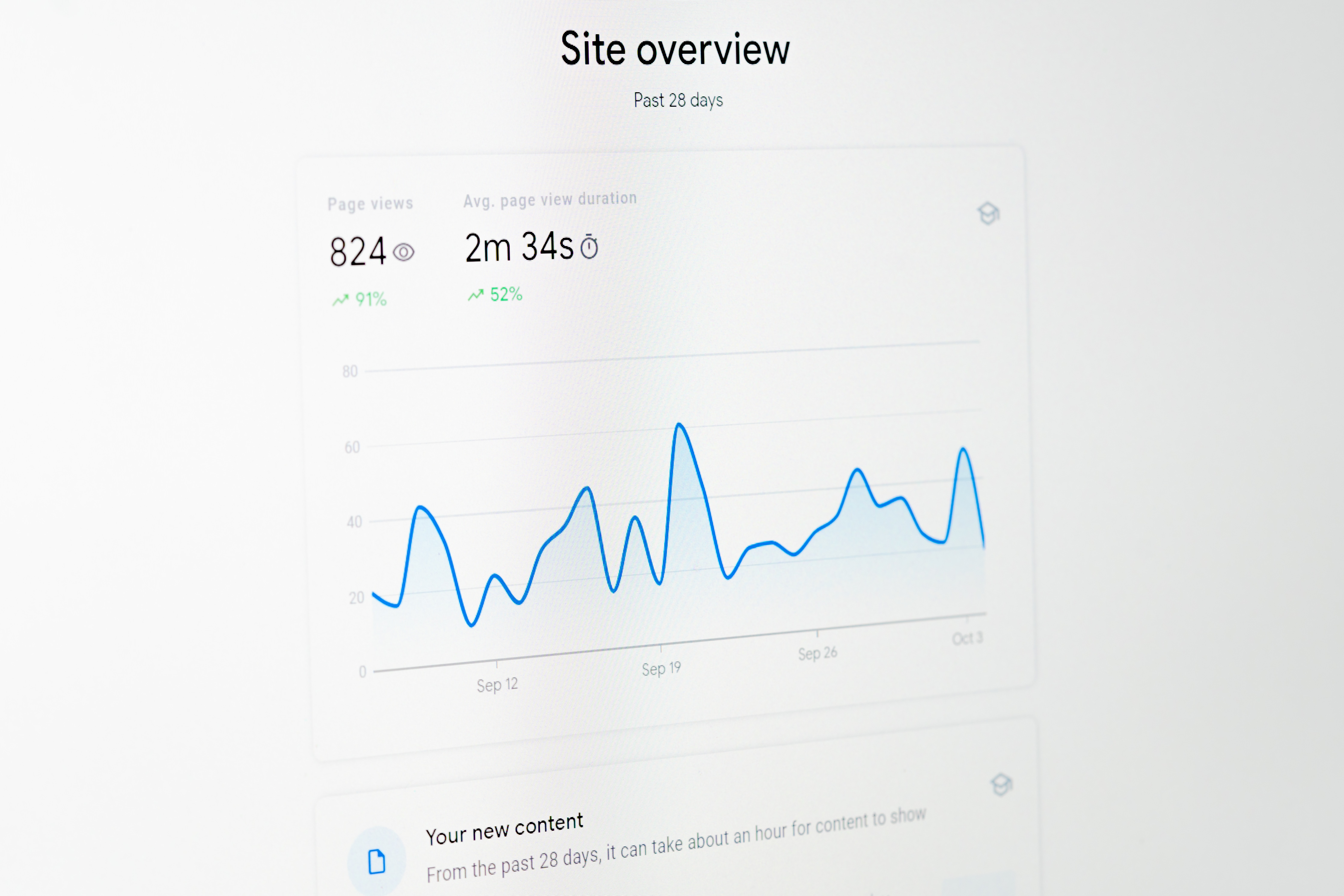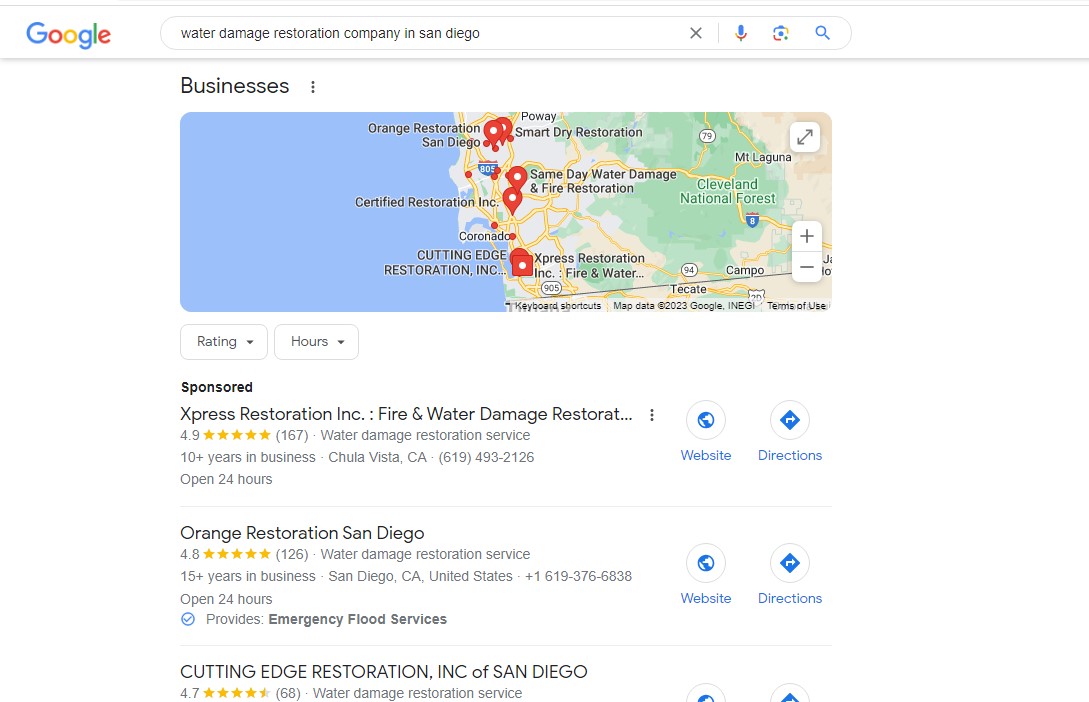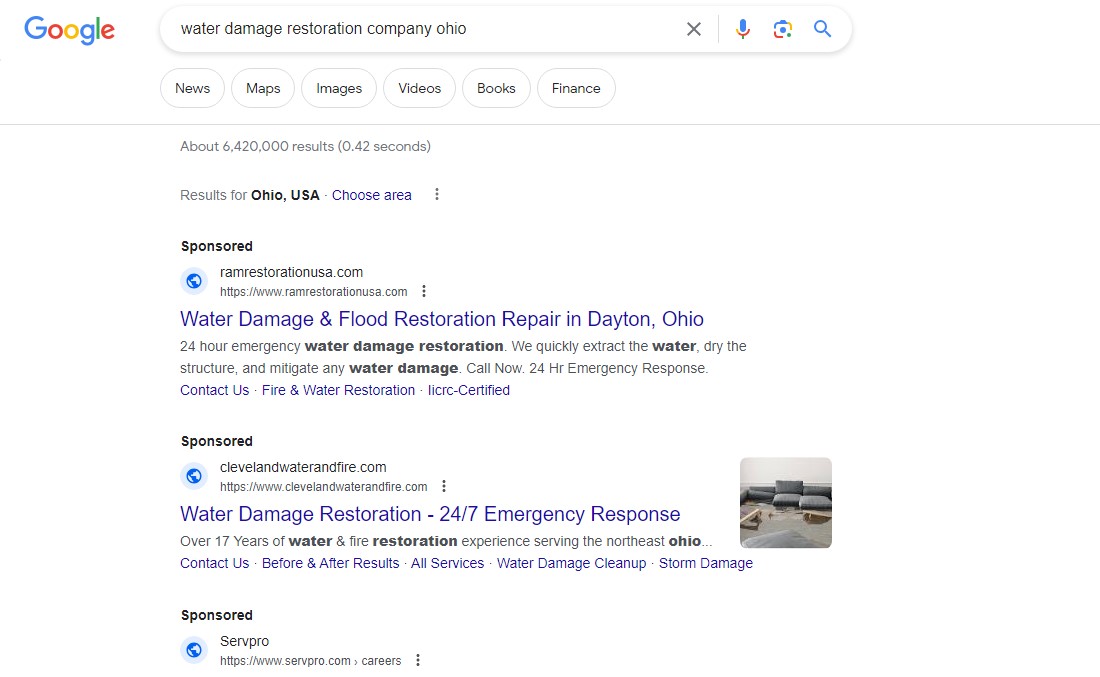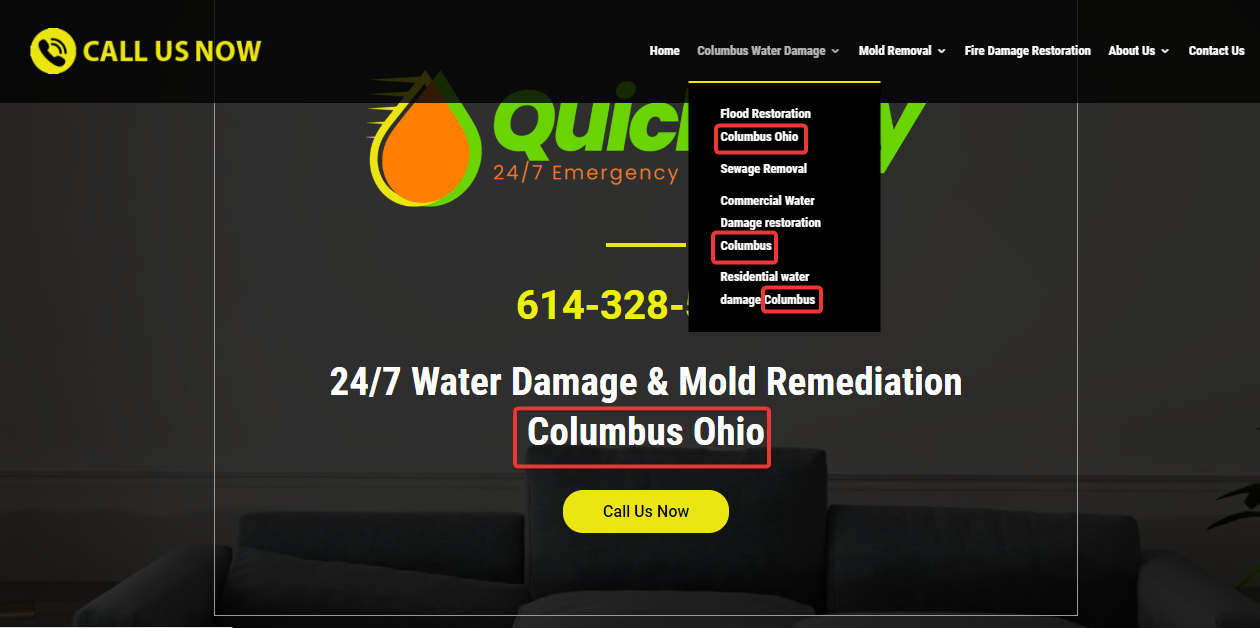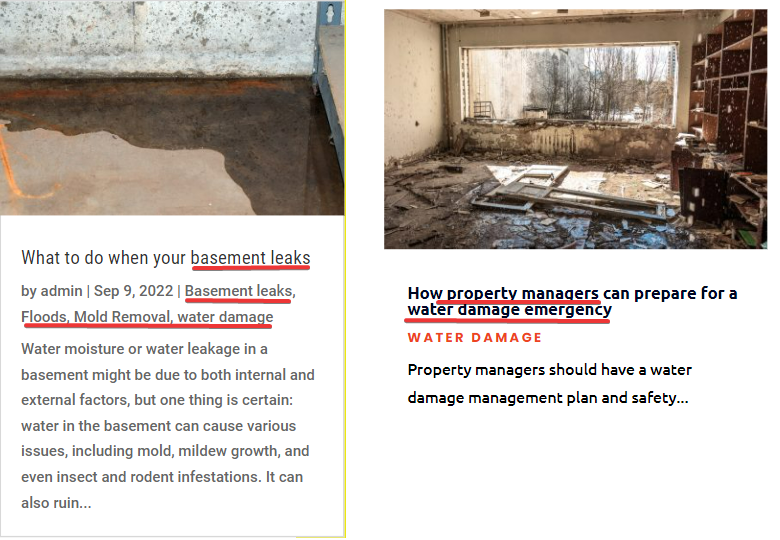In a nutshell, restoration companies specialize in providing professional services to repair and restore properties that have been damaged by various disasters. These companies help individuals and businesses recover from mold infestations, water damage, general disasters like storms or floods, and fire damage. Thanks to this wide range of focal points, restoration companies have the knowledge, experience, and equipment to accurately assess the extent of damage, develop a restoration plan, and execute the necessary restoration processes. The range of services they offer typically depends on the type of damage they specialize in.
There is no question about it, the restoration industry is booming and their services will always be needed. As good as this sounds, it also means there is ample competition, and having quality services is no longer enough to stand out from the crowd. Restoration companies need to learn how to market and promote their services in the online space in order to remain relevant and attract new leads, but how can they do that? The answer is simple: you need restoration marketing.
In this article, we will guide you through the process of creating a restoration marketing strategy that effectively showcases your company’s expertise and services. We will explore various marketing channels, including pay-per-click (PPC) advertising, and expand on how you can enhance the visibility of your business, attract potential clients, and establish your company as a trusted industry leader.
But first, what Is Restoration Marketing?
Restoration marketing refers to the strategic digital marketing efforts restoration companies take to promote their services, attract customers, and build strong relationships within the industry. It involves employing marketing strategies specifically tailored to the unique needs and challenges of the restoration industry. As digital marketers ourselves with ample experience in this industry, this is exactly what we do: by implementing targeted marketing strategies, we help restoration companies effectively reach their potential clients and position their brands as reliable choices for restoration needs.
What Are The Main Types Of Restoration Marketing Available?
There are several types of marketing options that restoration company owners can use to promote and grow their businesses. These strategies encompass various marketing tactics and channels. Here are the main types of effective restoration marketing we use in promoting our client services:
Water Restoration Marketing
A marketing strategy for a water restoration company should aim to raise awareness about its services, establish credibility, and attract customers who require water damage restoration. Here is a general overview of what we believe a solid water damage marketing strategy should include:
- Branding and Positioning
Develop a strong brand identity that highlights the expertise and professionalism of your water restoration services. Position your company as a trusted and reliable solution for addressing water damage issues. Build a professional website that showcases your water damage restoration services, expertise, and testimonials.
- Search Engine Optimization (SEO)
An SEO strategy involves the optimization of your website and online content to rank higher in search engine results. Focus on keywords related to water damage restoration, emergency water cleanup, and other relevant terms. By targeting relevant keywords, creating high-quality content, and improving website structure and user experience, you will be able to attract organic traffic. This helps increase the visibility of your restoration services.
- Social Media Marketing
By using popular social media platforms such as Facebook, Instagram, and LinkedIn, restoration business owners can promote their services. You can also engage with your loyal customers and foster meaningful connections. Social media platforms are a free and very useful resource to keep clients informed, possibly reach new leads and stay relevant within your industry.
Fire Damage Restoration Marketing
Fire damage restoration marketing is a specialized approach for fire damage restoration companies to promote their services directly to property owners affected by fire incidents. Here are some key fire damage restoration marketing strategies you should consider:
- Content Marketing
Developing informative and educational content about fire damage restoration can be an organic way to reach new clients. Try to write about topics that people might be searching for, that could be interesting and serve as a way for you to promote your company.
You can write blog posts addressing common questions about fire damage, such as smoke odor removal, structural repairs, and contents cleaning.
- Local SEO
As digital marketers, we optimize our client’s websites for local searches related to fire damage restoration. You can do this by using keywords that are specific to fire damage restoration in your website content, meta tags, and headings. Although there is a lot more that goes on in an SEO strategy, keywords are the basis of search engine optimization, which is why it’s crucial to research and include them in the most relevant sections of your website.
- Emergency Response Advertising
Consider running targeted PPC campaigns during times when fire incidents are more likely to occur. This ensures your company appears in search results when individuals actively seek immediate fire damage restoration assistance. Tailor your ads to emphasize your quick response time, and expertise in handling fire-related emergencies.
Mold Removal And Remediation Marketing
By implementing mold removal and remediation marketing strategies, you can effectively reach your target audience and establish your expertise. Here is a general overview of what a solid mold removal and remediation marketing strategy should include:
- Niche SEO: You can educate people on mold risks and health impacts. Develop educational content that highlights the health risks associated with mold exposure. Your content should inform your prospective customers about the signs of mold, potential health effects, and the importance of professional mold removal services. Add crucial keywords into the mix and you’ll have a solid resource that will allow you to be relevant within your industry while also promoting your services.
- Add interactive elements to your website: a good place to start would be with before-and-after visuals. Utilize visual content to showcase the transformative effects of mold removal and remediation. Share before-and-after photos or videos that demonstrate the extent of mold damage and the successful restoration of affected areas. This visual evidence serves as compelling proof of your company’s capabilities.
Disaster Restoration Marketing
A disaster restoration company is one that specializes in any type of restoration after a natural disaster has occurred, such as a hurricane, storm, flood, etc. When creating a general disaster marketing strategy, the steps to follow will be pretty similar to what we have already covered. However, given the urgency of the specific services that are covered here, a solid PPC campaign might be the most valuable asset in this case:
- Create a targeted PPC campaign that caters to your local community and boost it around the times when you know it is more likely that there will be storms and natural disasters.
- When creating the ad copies, emphasizes your quick response time, and ideally 24/7 availability.
- You should also create a landing page that provides information about your emergency services and contact details, and you can take prospective clients there via your ad copy.
- Highlight your company’s expertise and experience in handling disaster restoration projects.
- Emphasize your ability to restore properties to their pre-disaster condition.
How Can Digital Marketing Help Your Restoration Business?
Digital marketing offers various tools and strategies that help in growing your restoration business. Benefits of digital marketing for a restoration business include:
– Increased Online Visibility: With digital marketing, you can enhance your online presence and visibility. By optimizing your website for search engines through techniques like search engine optimization (SEO), you can improve your website’s ranking in search results. This means that when people search for restoration services in your area, your business is more likely to appear, increasing the chances of attracting potential customers.
-Targeted Advertising: Online marketing allows you to focus your advertising efforts on specific demographics, locations, and interests. You can reach your ideal audience and deliver tailored messages through platforms like Google Ads and social media advertising. For example, you can target homeowners in flood-prone areas with ads about water damage restoration within your specific province or state or even your neighborhood.
-Analytics and Tracking: Digital marketing provides access to robust analytical tools that allow you to track and measure the effectiveness of your marketing efforts. Powerful tools like Google Analytics provide insights into website traffic, user behavior, conversion rates, and more. By analyzing this data, you can identify which marketing channels and campaigns are performing well and make informed decisions to optimize your current strategy.
Creating A Marketing Strategy For Restoration Companies
Creating an effective marketing campaign is crucial for restoration companies to reach their potential customers, establish their brand, and generate exclusive leads. Here are key elements in developing a restoration marketing strategy to help your company thrive in the industry;
- Conduct Market Research:
Gain a deep understanding of the restoration industry, including market trends, potential customer preferences, and competitor analysis. Research local regulations and requirements related to restoration services to ensure compliance. Try to Identify business opportunities and challenges within the market that can guide your marketing strategy.
- Optimize Your Website
Having a professional and user-friendly website is a must in this industry, as this is how potential clients are likely to find you. Its importance can’t, therefore, be overstated. If you don’t already have one you need to develop it and take into account what we have covered so far in terms of content, keywords, interactive elements, and landing pages. If you do have one but it’s not really bringing in the desired online traffic, you should optimize it for search engines by incorporating relevant keywords related to restoration services in it. Ensure your website has a mobile-responsive design, loads quickly, and provides valuable information about your valuable services, expertise, and contact details.
- Implement Search Engine Optimization (SEO)
Implementing SEO techniques helps your website rank higher in organic search engine results. Conduct thorough keyword research to identify relevant keywords related to restoration services, such as “water damage restoration,” “fire damage cleanup,” or “mold remediation.” Incorporate these keywords naturally into your website’s content, meta tags, headings, and image alt tags.
- Local SEO and Google My Business
Optimizing for local SEO is essential for restoration companies targeting local customers. To do that, claim and optimize your Google Business profile. Make sure the information, contact details, and business hours you provide are accurate. Encourage previous clients to leave 5-star reviews on your Google business listing, as positive reviews enhance your online reputation.
- Social Media Marketing:
Having a strong online business presence can significantly benefit restoration companies. Identify the platforms that resonate most with your target audience, such as Facebook, Twitter, Instagram, or LinkedIn. Share informative content, before-and-after photos, videos, and testimonials showcasing your restoration work.
Pay-Per-Click For Restoration Companies
A PPC (Pay-Per-Click) ad is a type of digital advertising where advertisers pay a fee each time their ad is clicked. There are several types of PPC ads. The most common types are display ads, video ads, and search ads. Here are some key considerations for implementing a PPC strategy:
- Keyword Research: Conduct thorough keyword research to identify relevant keywords related to restoration services, such as “water damage restoration,” “fire damage cleanup,” or “mold remediation.” Use keyword research tools like Google Keyword Planner or SEMrush to discover high-traffic, low-competition keywords specific to your target location.
- Compelling Ad Copy: Create compelling and concise ad copy that highlights your unique selling points, such as 24/7 emergency response, certified technicians, or advanced restoration techniques. Include a strong CTA (call to action), such as “Call Now for Immediate Water Damage Restoration” or “Get a Free Mold Inspection Today.”
- Landing Page Optimization: Create dedicated landing pages for each online advertising campaign you have to provide a seamless user experience and improve conversion rates. Optimize your landing pages with valuable content, clear contact information, and prominent CTAs. You can also highlight your expertise, showcase testimonials, and include visuals such as before-and-after photos to build trust and credibility.
Here’s a water damage restoration PPC example you can consider.
This is a PPC search ad. A PPC search ad typically appears at the top or bottom of search engine results pages (SERPs) when a user enters relevant keywords in their search query. These ads are marked as “Ad” or “Sponsored” to indicate that they are paid placements. Now, what’s so important about this example?
Let’s break down how these two water restoration companies have created their ads:
- The first company has highlighted:
- Their 24h emergency availability
- Promptness in dealing with the situation
- The services they provide
- Their local area
- And have key links to their contact information and certifications at hand
The second company, on the other hand, has:
- Included their 24/7 availability on the main title
- Provided their years of experience (17) to position themselves as a reliable company
- Targeted their local community
- Specified their services
- And also added key links to their contact information, before and after resources, list of services, and the two main services they want potential clients to focus on
Clearly, both of these companies know exactly what they are doing, the area they want to reach, the important information they want people to have, and have made it very easy for potential clients to reach them.
SEO For Restoration Companies
Implementing SEO strategies is crucial for restoration companies to improve their online visibility and attract organic traffic. Here’s an example of how we apply SEO to optimize a restoration company’s website for better search engine rankings:
- On-Page Optimization: our initial step is always to conduct thorough keyword research to identify the wording that’s necessary to stand out in each particular industry. Once we have that information, we then optimize the content on our client’s website and pages to target the identified keywords. We ensure that the page titles, headings, meta descriptions, and URL structures include relevant keywords. As additional advice, you should also create informative and engaging content that addresses the needs and concerns of your online customers while incorporating relevant keywords naturally.
- Technical SEO: Ensure that your website has a clean and crawlable structure for search engine bots. Optimize website loading speed, mobile responsiveness, and navigation to enhance the user experience. Implement proper HTML markup, meta tags, and schema markup to provide search engines with additional information about your restoration services.
- Local SEO: Focus on local SEO to target customers in specific geographic areas. Optimize your website and online listings with location-specific keywords, such as city names or neighborhood names, to attract local customers searching for restoration services. Create a Google My Business profile and optimize it with accurate business information, customer reviews, and relevant images.
- Content Creation: Develop high-quality content that demonstrates your expertise and addresses common questions and concerns related to restoration services. Create informative blog posts, articles, and guides that offer valuable insights and solutions. Share this content on your website, blog, and social media platforms to attract organic traffic and establish your authority in the industry. We have personally done this through informational blogs that are then uploaded to our client’s websites.
Here’s a water-damage SEO example you can consider:
This is the homepage of one of the restoration clients we have worked with in the past, and our first steps are evident in this image. To optimize their site, we started by adding localized keywords.
- We added location-specific keywords to target customers in their specific service area, like “Columbus, Ohio”, or just “Columbus” depending on the search volume of each term. This helped improve their visibility in local search results.
- We also added relevant long-tail keywords related to water damage restoration, such as “flood restoration”, and “residential water damage”, which allowed us to promote their specific services. This, coupled with the location-specific keywords, created solid service pages. We recommend you incorporate these keywords strategically throughout your website’s content, including page titles, headings, meta descriptions, and within the body text. For example, you could use “water damage repair,” “emergency water extraction,” “flood damage cleanup,” and “water damage restoration company.”
The particular long-tail keyword you find will also help you understand the type of content you should write. The ones from the previous example are pretty self-explanatory but are not the only ones we used. We also found more topic-specific keywords that were perfect for our different blog sections:
To wrap things up
Building a solid marketing strategy for your restoration company can effectively improve its growth. By implementing effective marketing channels such as social media, PPC ads, and SEO, and having a strong online presence, you can significantly and ultimately grow your company. At Nomadic Advertising, we understand the challenges restoration companies face in marketing their services effectively.
With our extensive experience and expertise in the restoration industry, we can help you create a comprehensive marketing strategy that aligns with your business goals. Our restoration marketing services include PPC advertising, SEO optimization, social media management, content creation, web design and development, and more. Contact us to get a FREE 30-minute strategy session and unlock the full potential of your restoration business through a powerful marketing strategy.
Key Takeaways
- To thrive in a competitive industry, it is important for restoration business owners to build a solid online marketing strategy.
- Comprehensive marketing ideas for restoration companies should include a mix of digital marketing channels such as social media, PPC ads, and SEO.
- Pay-per-click (PPC) advertising can be an effective way to generate concrete leads for restoration services.
- Search Engine Optimization (SEO) is crucial for improving online visibility and attracting organic traffic to a restoration company’s website.
- Consistency, responsiveness, and a customer-focused approach are key to successful marketing for restoration companies.




